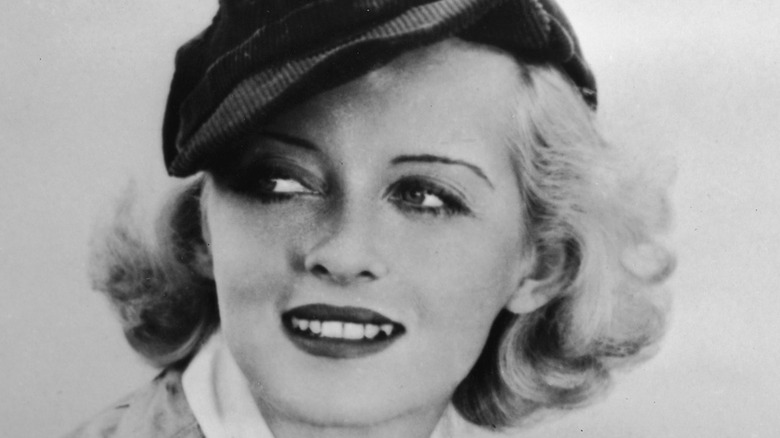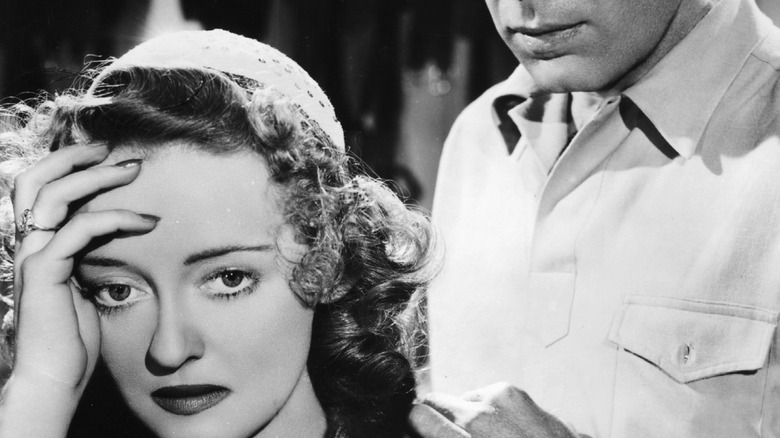Here's Why Bette Davis Was Once Referred To As The Fourth Warner Brother
When Bette Davis came to Hollywood in 1930, she worked two for Universal Studios, then cast her lot with Warner Brothers Studios, reports History of Yesterday. Working for them, she found fame and fortune, but it was not a smooth ride. Indeed, you could say that she fought with the Warner Brothers like family.
Davis bristled under her Warner Brothers contract, fighting with head Jack Warner to work for good directors. She turned down a leading role in 1938 for a film called "Gone With the Wind," because she assumed it would be yet another failure, according to History of Yesterday. She went to England to work for a studio there that had promised her good scripts and directors, even though she was still under contract with Warner Brothers. A lawsuit soon followed.
In a London courtroom, Davis waged a legal battle to gain the freedom to turn down roles she didn't want, work with other studios, and end her contract with Warner Brothers which she likened to a "contract slave system" according to Vanity Fair. She lost the lawsuit but gained the respect of fellow actors and Jack Warner himself. She continued to work for him.
Family feud
Returning to Warner Brothers, Bette Davis continued to fight for meaty roles for herself. Even when Jack Warner insisted no one would watch a movie about a dying woman, Davis was able to convince him to let her play the role, according to the Los Angeles Times. What resulted was the 1939 blockbuster film, "Dark Victory."
Davis' portrayal of Judith Traherne earned her an Oscar nomination, and a nickname any actor or actress would covet. The press called her "the fourth Warner Brother." Despite family arguments, Davis' career continued to flourish under Warner Brothers, with whom she stayed for the next ten years. Her contract expired in 1949.
According to Mental Floss, Davis went on to make Oscar history in 1962, when she received her tenth Oscar nomination for her performance in "What Ever Happened to Baby Jane?" At the time, that was the most nominations any actor had received.

